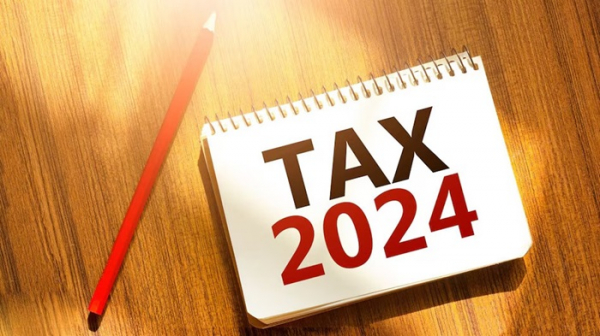Analyzing Budget 2024: Potential Effects of Capital Gains Tax Increase on Market Sentiment
- by B2B Desk 2024-07-19 10:22:48
Concerns are mounting over a potential increase in capital gains tax in the upcoming budget. Experts fear such a move could dampen market sentiment in the short term without necessarily boosting government revenues as intended. Dhirendra Kumar, CEO of Value Research, noted that any hike would likely disproportionally affect market mood, potentially unsettling investors and companies seeking funding.
Kumar previously highlighted in 2022 how Indian equity investors might be overly fixated on capital gains tax, advising against excessive worry despite acknowledging its impact. He views it as an additional burden, arguing that companies have already paid taxes on their earnings.
The introduction of capital gains tax on equity and equity-oriented mutual funds in Budget 2018 marked a significant policy shift. Suresh Swamy, partner at PwC India, cautioned that if history serves as a guide, investors should prepare for challenging times ahead should such a tax hike materialize.
There is currently no indication of an imminent increase in capital gains tax, according to Suresh Swamy, partner at PwC India. Dhirendra Kumar from Value Research suggested that the market's reaction in 2018 may have been influenced by poor corporate earnings during that period.
Rajesh Gandhi, partner at Deloitte India, emphasized that any potential hike could disproportionately affect high net-worth individuals (HNIs), potentially impacting market sentiment and tax revenues. He noted, "A hike in capital gains tax could temporarily deter investors, particularly those who actively trade in the market, despite the recent strong performance of the markets."
Gouri Puri, partner at Shardul Amarchand Mangaldas, highlighted concerns that an increase in capital gains tax might discourage investors from realizing their gains, potentially undermining the government's revenue objectives.
According to Gouri Puri from Shardul Amarchand Mangaldas, an increase in capital gains tax could negatively affect sentiment towards savings and investment. She highlighted that higher tax rates might discourage investors from selling their investments to realize gains, potentially leading to lower-than-expected revenue gains for the government. This, in turn, could impact both individual retail investors and Indian businesses seeking capital.
Regarding potential market impacts, industry veterans believe that simplifying the tax structure through rationalization could significantly improve investor sentiment. Harsh Roongta, a registered Investment Advisor and founder of Fee Only Investment Advisors, emphasized the importance of streamlining the tax framework. He pointed out that the complexity of the current long-term capital gains tax, including factors like holding periods and asset types, adds unnecessary complications that could benefit from simplification.
Harsh Roongta, a registered Investment Advisor and founder of Fee Only Investment Advisors, expressed uncertainty about the upcoming changes in capital gains tax but stressed the necessity for simplifying its structure.
He described the current long-term capital gains tax system as overly convoluted, pointing out the complexities related to holding periods and the types of assets that factor into tax calculations. Roongta highlighted the challenges he encountered while working on educational materials for the National Institute of Securities Markets (NISM), where his team spent a whole day deciphering the intricacies of the tax structure. Eventually, they had to break down the details into three tables to clarify the numerous exceptions.
His remarks underscore the need for reform to streamline the tax system, advocating for simplicity to improve clarity and ease of understanding for taxpayers.
Harsh Roongta, who authored the textbook for the National Institute of Securities Markets (NISM), recounted how his team spent an entire day unraveling the complexities of the tax structure. They had to categorize the details into three tables to make sense of all the exceptions involved.
Expressing uncertainty about potential changes to the capital gains tax structure, Roongta emphasized the urgent need for simplification. He criticized the current system as a confusing "smorgasbord" resulting from frequent adjustments over time. Roongta even challenged anyone in the finance ministry to recall the intricate details of the taxation system from memory, highlighting its excessive complexity.
While others in the financial industry share similar concerns, they express them with less intensity compared to Roongta's passionate stance on the issue.
According to Deloitte's Rajesh Gandhi, there's a widespread expectation for simplified capital gains tax rules across various asset classes, which could potentially be introduced in Budget 2024 with adjustments. Additionally, there's a call for moderation in the taxation of derivatives and clarity in the taxation of more complex alternative investment funds (AIFs), particularly long-only funds.
Gandhi highlighted that these changes aim to promote simplicity, ease of investment, and provide relief to futures and options (F&O) investors.
Meanwhile, Gouri Puri from Shardul Amarchand Mangaldas emphasized that the industry has long advocated for rationalizing the capital gains tax regime. She pointed out that the current system, with different rates across asset classes and investors, creates distortions and promotes inequity in Indian capital markets.
Puri added, "The existing capital gains tax provisions are overly intricate and challenging to comprehend."
Also Read: Top Picks in Agriculture Stocks: Navigating Growth and StabilityPOPULAR POSTS
Loan EMIs to Drop as RBI Slashes Repo Rate - Full MPC December 2025 Highlights
by Shan, 2025-12-05 11:49:44
Zoho Mail vs Gmail (2025): Which Email Platform Is Best for Businesses, Startups, and Students?
by Shan, 2025-10-09 12:17:26
PM Modi Launches GST Bachat Utsav: Lower Taxes, More Savings for Every Indian Household
by Shan, 2025-09-24 12:20:59
$100K H-1B Visa Fee Explained: Trump’s New Rule, Clarifications & Impact on Indian Tech Workers
by Shan, 2025-09-22 10:11:03
India-US Trade Deal Soon? Chief US Negotiator Arrives in Delhi as Talks Set to Begin Tomorrow
by Shan, 2025-09-15 11:54:28
Modi Meets Xi: Trump’s Tariffs, Strategic Autonomy, and the Future of Asia’s Power Balance
by Shan, 2025-09-03 06:40:06
Google Claims Gemini AI Uses Just ‘Five Drops of Water’ Per Prompt, Sparks Debate
by Shan, 2025-08-22 12:34:27
RECENTLY PUBLISHED

Pine Labs IPO 2025: Listing Date, Grey Market Premium, and Expert Outlook
- by Shan, 2025-11-05 09:57:07

The Agentic Revolution: Why Salesforce Is Betting Its Future on AI Agents
- by Shan, 2025-11-05 10:29:23

Top 10 Insurance Companies in India 2026: Life, Health, and General Insurance Leaders Explained
- by Shan, 2025-10-30 10:06:42

OpenAI Offers ChatGPT Go Free in India: What’s Behind This Big AI Giveaway?
- by Shan, 2025-10-28 12:19:11

Best Silver Investment Platforms for 2025: From CFDs to Digital Vaults Explained
- by Shan, 2025-10-23 12:22:46





 Subscribe now
Subscribe now 